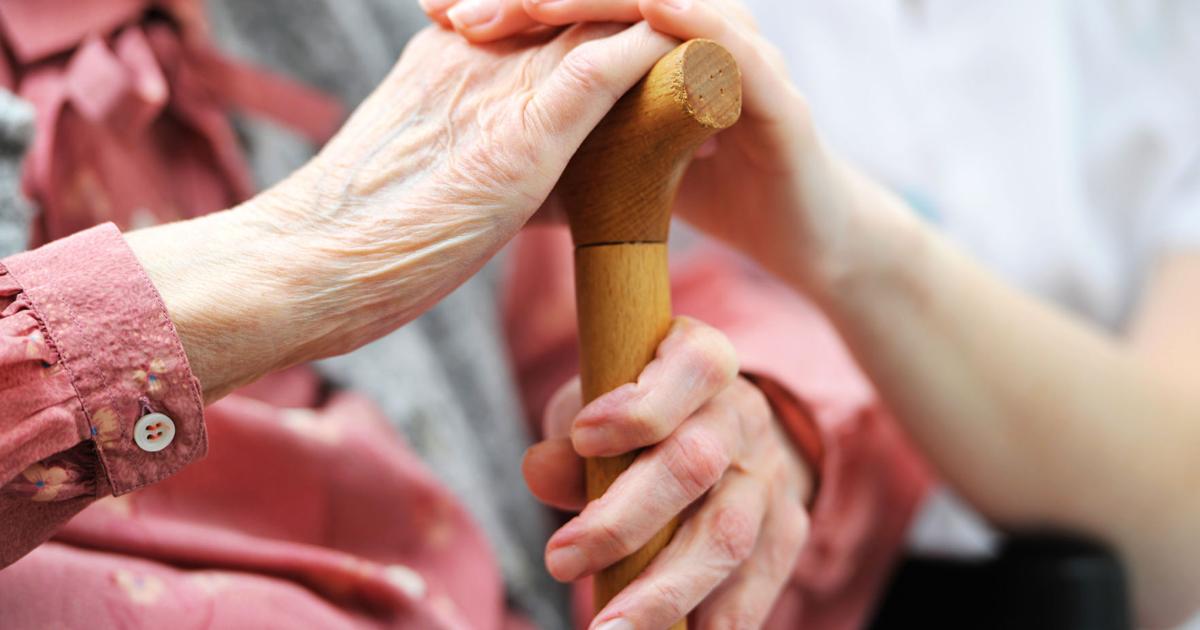
Q: My parents will be moving closer to me soon, and I’m trying to help them downsize. Do you have tips for approaching the de-cluttering conversation? — RS
Answer: When approaching the subject of de-cluttering and downsizing, it will most likely require patience and sensitivity.
Remember, all of the clutter that you see is the material representation of a life full of memories. Phrasing your questions about what to keep in yes or no questions, rather than open-ended discussions, may help your parents make practical decisions about what they do and do not need. It is also important to keep in mind that most things — especially damaged, inexpensive, or outdated items — can be replaced, especially if you think it will ease the stress on everyone and make the transition to a new home less complicated.
While the stress of downsizing in a move can easily cause a sense of urgency, setting long-term goals and tackling one thing at a time will be most effective. Think about dedicating a couple hours to the clutter, then coming back to it the next day or week. However, this doesn’t mean you should put off sorting an item because no one can decide whether to keep it. Don’t leave the option for a maybe pile; instead, question your parents about how often they use the item. Something that hasn’t been picked up in the last few years probably won’t be needed in the future. Unless they are particularly attached to an item for sentimental reasons, the items they use the most should come before the more expensive or aesthetically appealing ones.
People are also reading…
If you are having trouble deciding where to start, you can look for multiples of the same item that your parents will most likely not need. Kitchenware, clothing, and tools tend to accumulate over the years, so downsizing will require a realistic look at the amount of these items that will fit in the new space. Whole collections can also be downsized by picking out one or two to represent this part of their life, taking photos of them to remember, or giving them away to relatives or close friends that will appreciate and take care of them. Encourage them to take pride in these things, rather than trying to convince them that they are no longer necessary. Remember to listen to your parents. Asking them for the stories behind some of the clutter they have kept around will help both of you gain a better understanding about the necessity of the object.
Q: I am doing the best that I can to care for mom at home, but sometimes I wonder if there are adjustments that I can make in our routines that will make things easier for me as a caregiver. Where can I find tips and strategies to help? — JD
Answer: You are not alone! Caregivers often find themselves in uncharted territory with more questions than answers. The first step is to recognize the need for support, practical tips and self-care. It may be helpful to seek out a support group with others who understand what you are going through and share ideas and resources. One local resource is Trellis Supportive Care. They offer monthly Caregiver Confidence workshops that are free of charge and open to anyone in the community.
Being a primary caregiver for a loved-one can be challenging, even for people with professional caregiving experience. Having an opportunity to build confidence through practical education and hands-on training can make a big difference. Caregiver Confidence workshops teach participants about organizing medical information, home safety, fall prevention, nutrition, and caring for yourself. There are actual drills for learning about safe transfers in and out of bed/chair, preventing bed sores, managing incontinence, and much more. Additionally, there is a lab set up that resembles a real home-like setting so participating caregivers can practice what they are learning.
The workshops are presented in two sessions on the third and fourth Wednesday of each month from 9 a.m. until noon, at the Trellis Supportive Care campus in Winston-Salem, 101 Hospice Lane. Part 1 covers Tips and Tricks. Part 2 focuses on Skills and Drills. Participants may choose to attend both sessions or pick one session to attend based on their availability and needs.
Trellis’ Senior Vice President of Clinical Operations, Virginia White, shared that, “Caregiver Confidence was designed to help caregivers at the beginning of the journey right up through the more physically demanding times. We are pleased to offer this to anyone in the community, free of charge, regardless of your connection to Trellis Supportive Care. We know it’s a challenging time in so many ways, and if we can give a little extra support by providing helpful tips and techniques, it’s all part of our mission in providing supportive care.”
Caregiver Confidence workshops are interactive and facilitated by a nurse educator who will take time to answer participant questions. Additionally, a complimentary lunch is provided after the workshops to give participants an opportunity to connect with other caregivers.
To learn more about Caregiver Confidence workshops or to register, please call 336-768-3972 or visit TrellisSupport.org.
AgeWise is a weekly column compiled by staff of Senior Services Inc., a nonprofit organization in Winston-Salem. If you have a question, email agewise@seniorservicesinc.org or mail to Senior Services, 2895 Shorefair Drive, Winston-Salem, NC 27105.
from WordPress https://ift.tt/rJlXa7E
via IFTTT

0 Comments